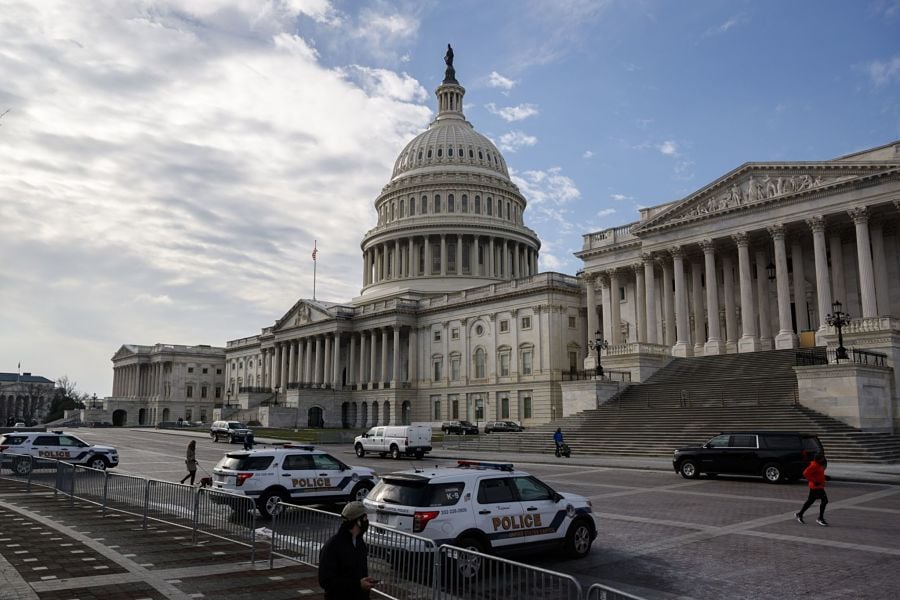

A Senate panel introduced draft retirement savings legislation Thursday that likely will become part of the foundation for the chamber’s contribution to a comprehensive bill later this year.
The Senate Health Education Labor and Pensions Committee released a discussion draft of the bill — the Retirement Improvement and Savings Enhancement to Supplement Healthy Investments for the Nest Egg, or Rise & Shine, Act — that would amend federal retirement law to boost workers’ and retirees’ ability to accumulate assets for post-work life.
The bill would expand retirement plan coverage for part-time workers, establish emergency savings accounts linked to workplace retirement plans, allow multiple-employer 403(b) plans, improve fee disclosures for 401(k) plans and increase transparency of lump-sum buyout offers, according to a summary.
The bill was written by the committee’s chair, Sen. Patty Murray, D-Wash., and ranking Republican, Sen. Richard Burr of North Carolina. It will be open for public comment until June.
The legislation represents the Senate HELP Committee’s piece of what likely will become a larger Senate bill that serves as the companion to a comprehensive retirement savings bill, known as SECURE 2.0, approved in the House earlier this year with overwhelming bipartisan support.
“This is the next logical step for the Senate,” said Paul Richman, chief government and political affairs officer at the Insured Retirement Institute. “It continues to make progress toward a comprehensive retirement bill.”
The Senate HELP Committee has jurisdiction over federal retirement law, the Employee Retirement Income Security Act. The Senate Finance Committee also is likely to put together a bill that addresses changes to the tax code to catalyze retirement savings.
In an announcement about its draft bill, the Senate HELP Committee said the panel plans to introduce and mark up final legislation in coming weeks. The Senate Finance Committee also is expected to act on legislation over the summer.
The Finance and HELP bills likely will be merged and then combined with SECURE 2.0 for a final bicameral bill, Richman said. Lawmakers would then try to attach it to another bill that must be passed before the end of the year.
If Congress does not approve retirement-savings legislation by Dec. 31 — the end of the current session of Congress — the measure dies and would have to be reintroduced next year.
A retirement security measure could gain momentum because it addresses some of the economic concerns voters have as the head to the polls in November.
“It’s all part of the 2022 election issues coming to the forefront, especially individual economic security — and retirement security is a key element,” Richman said.
As the Senate HELP Committee works on a final bill, IRI will encourage lawmakers to include a bill introduced by Reps. Donald Norcross, D-N.J., and Tim Walberg, R-Mich., the Lifetime Income for Employees Act. The measure would allow annuities to serve as qualified default investment alternatives in defined contribution plans.
Murray praised the idea at a recent HELP Committee hearing. But the provision was not included in the draft legislation.
“I’m surprised it was not addressed,” Richman said.
People wishing to provide input to the HELP Committee can contact it at RiseAndShine@help.senate.gov.

Relationships are key to our business but advisors are often slow to engage in specific activities designed to foster them.

Whichever path you go down, act now while you're still in control.

Pro-bitcoin professionals, however, say the cryptocurrency has ushered in change.

“LPL has evolved significantly over the last decade and still wants to scale up,” says one industry executive.

Survey findings from the Nationwide Retirement Institute offers pearls of planning wisdom from 60- to 65-year-olds, as well as insights into concerns.
Streamline your outreach with Aidentified's AI-driven solutions
This season’s market volatility: Positioning for rate relief, income growth and the AI rebound
